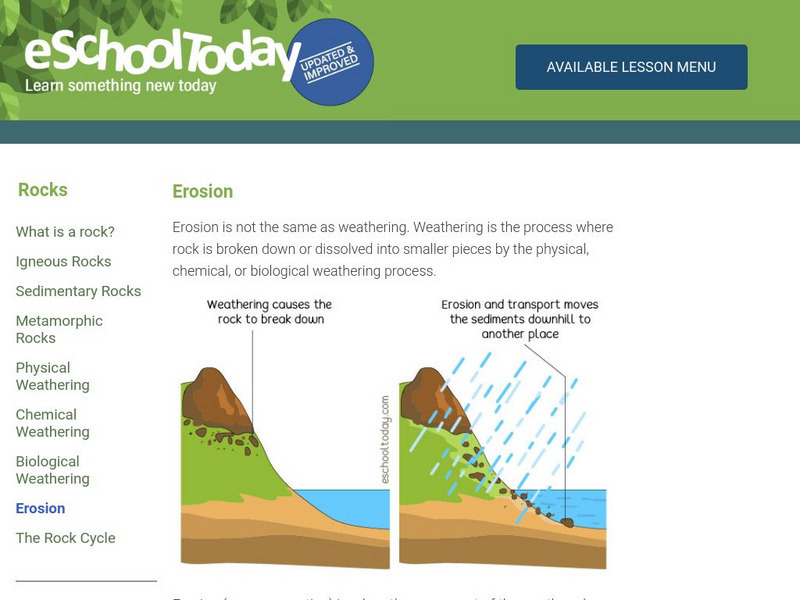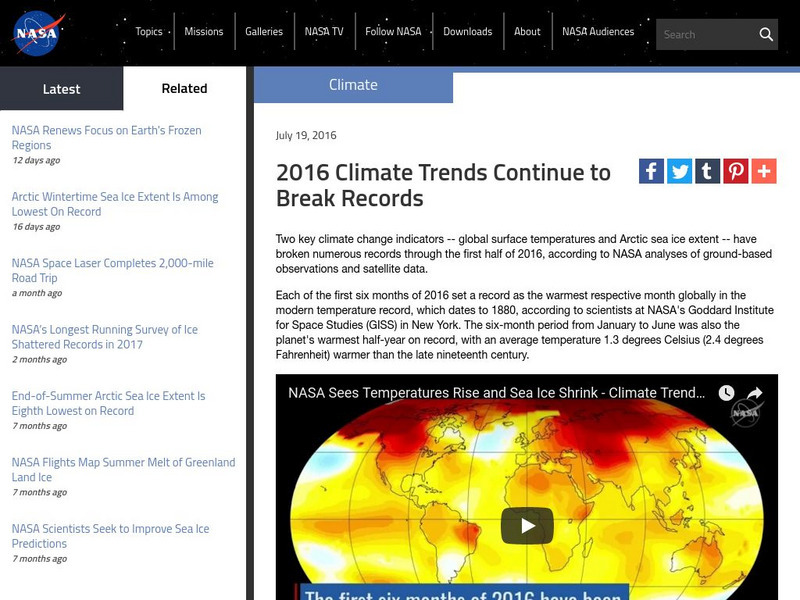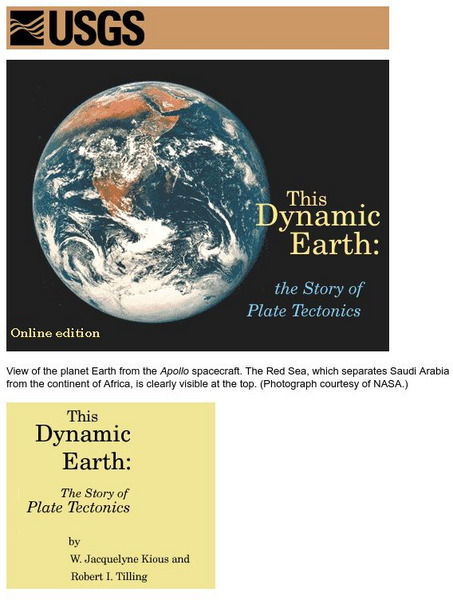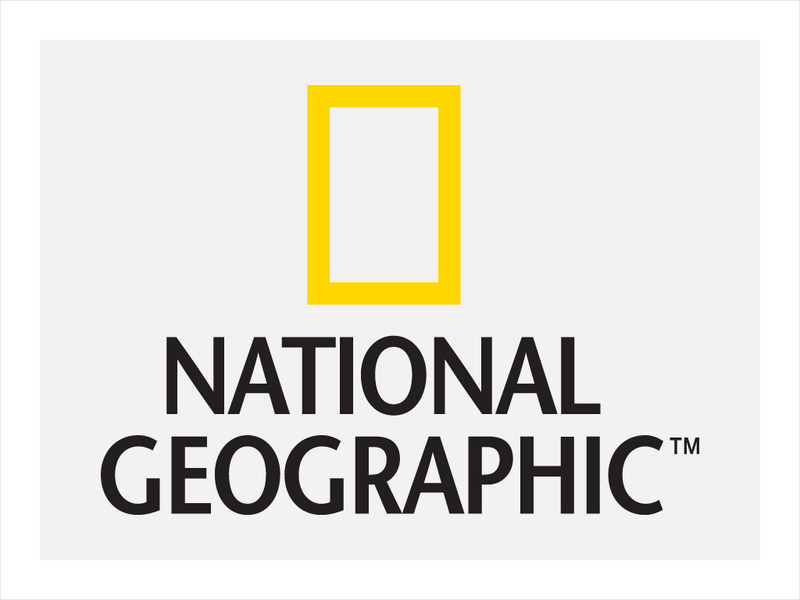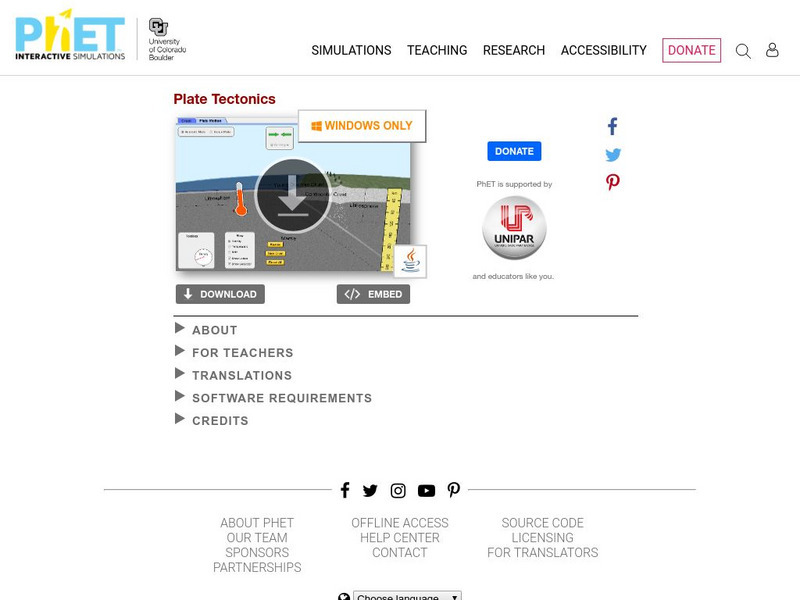University of Colorado
University of Colorado: Ph Et Interactive Simulations: Plate Tectonics
Explore how plates move on the surface of the earth. Change temperature, composition, and thickness of plates. Discover how to create new mountains, volcanoes, or oceans! Java is required.
TeachEngineering
Teach Engineering: The Earth Is a Changin'
This instructional activity introduces and describes the main types of erosion (i.e., chemical, water, wind, glacier and temperature). Students learn examples of each type of erosion and discuss how erosion changes the surface of the...
American Geosciences Institute
American Geosciences Institute: Earth Science Week: Sea and Ice Salinity
Students investigate the effects of salinity on the formation of sea ice, and whether salt water freezes more quickly or more slowly than fresh water.
The Wonder of Science
The Wonder of Science: Ms Ess2 2: Geoscience Processes at Varying Scales
Assessment templates, videos, examples, lesson plans, and photos of student work that directly address standard MS-ESS2-2: geoscience processes at varying scales.
NASA
Nasa: 2016 Climate Trends Continue to Break Records
NASA studies of global surface temperatures and Arctic sea ice extent provide data to determine climate changes on Earth. Research for only the first half of 2016 identifies the year as being one of the hottest on record.
US Geological Survey
Usgs: Plate Tectonics and Mid Oceanic Ridges
Excellent graphics and understandable text about all aspects of plate tectonics including mid-ocean ridges.
Incorporated Research Institutions for Seismology
Iris: Earthquake Browser
A live, real-time data global map of all current earthquake activity.
Library of Congress
Loc: Sea Changes in a Community
A lesson plan dealing with the fishing industry in New England and native and immigrant fishermen, and government legislation.
National Geographic
National Geographic: Sources, Sinks, and Feedbacks
Students will learn about how the Earth's carbon cycle works, as they examine the relationship between levels of carbon dioxide and water vapor in the atmosphere and the temperature of the ocean's surface. Includes online student...
Science Struck
Science Struck: What Are Ocean Trenches and How Are They Formed?
Around 72 percent of the Earth's surface is found under the oceans. It has always been contributing to the dynamically changing face of the Earth through the tectonic phenomenon occurring at its depths. Such a naturally occurring...
Other
California's Native People, Desert Interior
This site has information about the settlement patterns of the Native People of California based on the location and availability of resources.
University of Colorado
University of Colorado: Ph Et Interactive Simulations: Ph Et: Interactive Simulations: Plate Tectonics
Students studying plate tectonics will better understand its concepts with this virtual experiment that tests how plates move on the surface of the earth. Temperature, composition, and thickness of plates can be changed to create new...
PBS
Pbs Learning Media: Sunspots on the Move
The following videos show sunspots using wavelengths of light that the human eye cannot see. Watch sunspots emerging on the earth's surface, a sunspot moving across the earth's surface, and the rotation of the sun as a sunspot evolves...
PBS
Pbs Learning Media: Hurricane Matthew Causes Weathering and Erosion
View videos and photos from the aftermath of Hurricane Matthew and see how the earth's landforms changed as a result of the heavy winds and rain. Weathering and erosion made a new landform and dramatically changed the coastline....
Scholastic
Scholastic: Study Jams! Science: Landforms, Rocks & Minerals: Earthquakes
A video and a short multiple-choice quiz on earthquakes, how they form, how they are measured, and the ways they can change the surface of the Earth.

